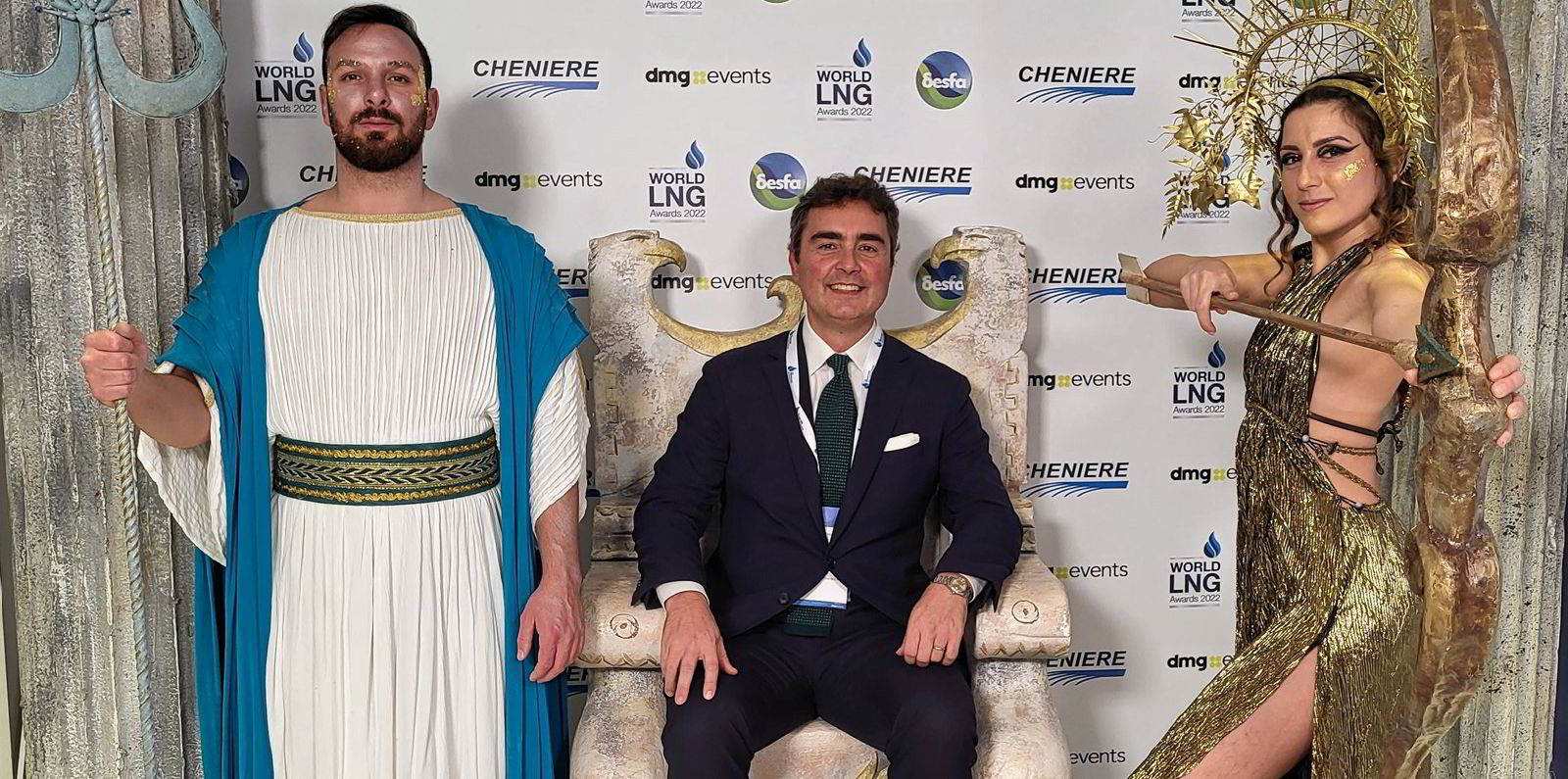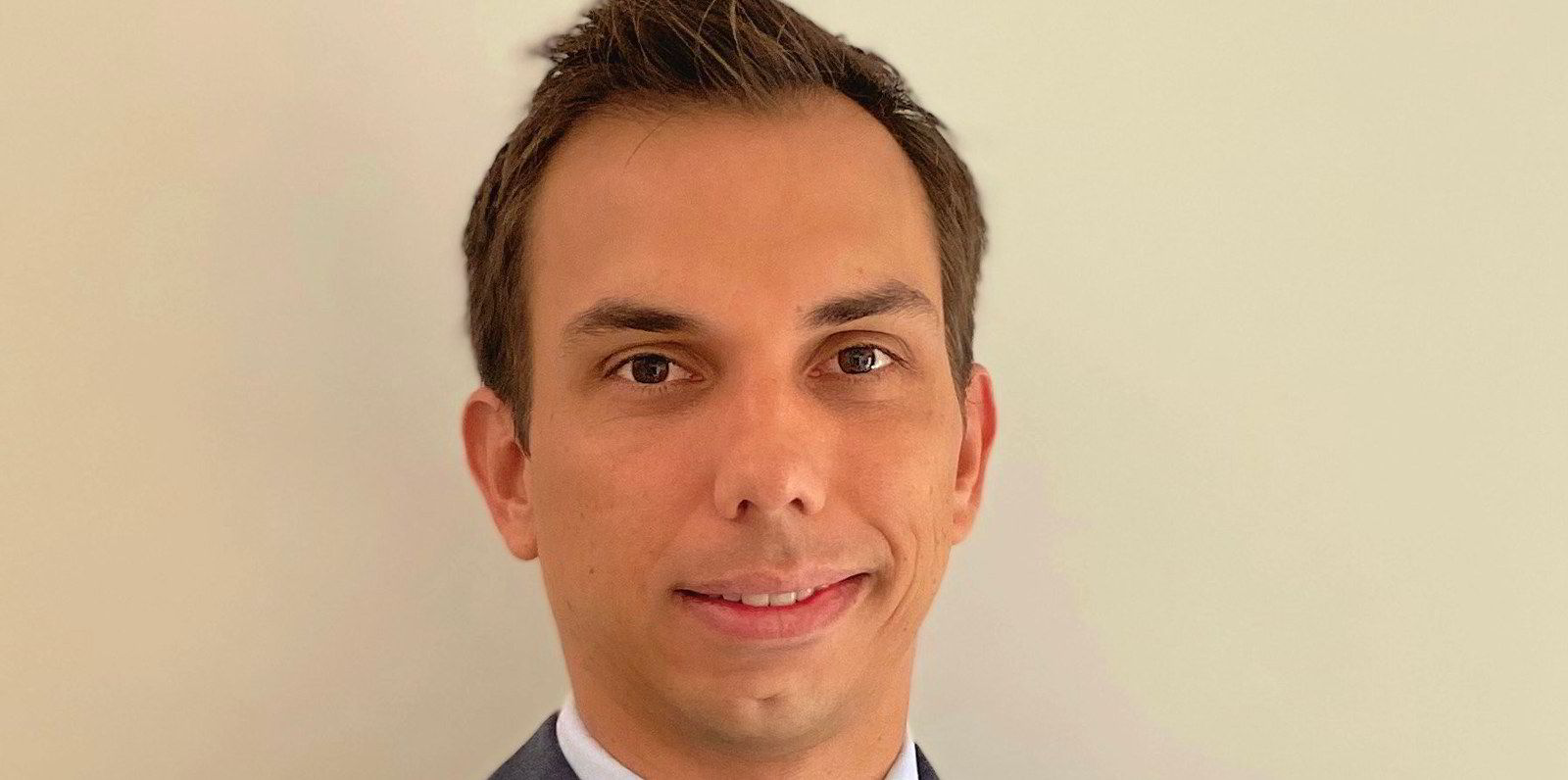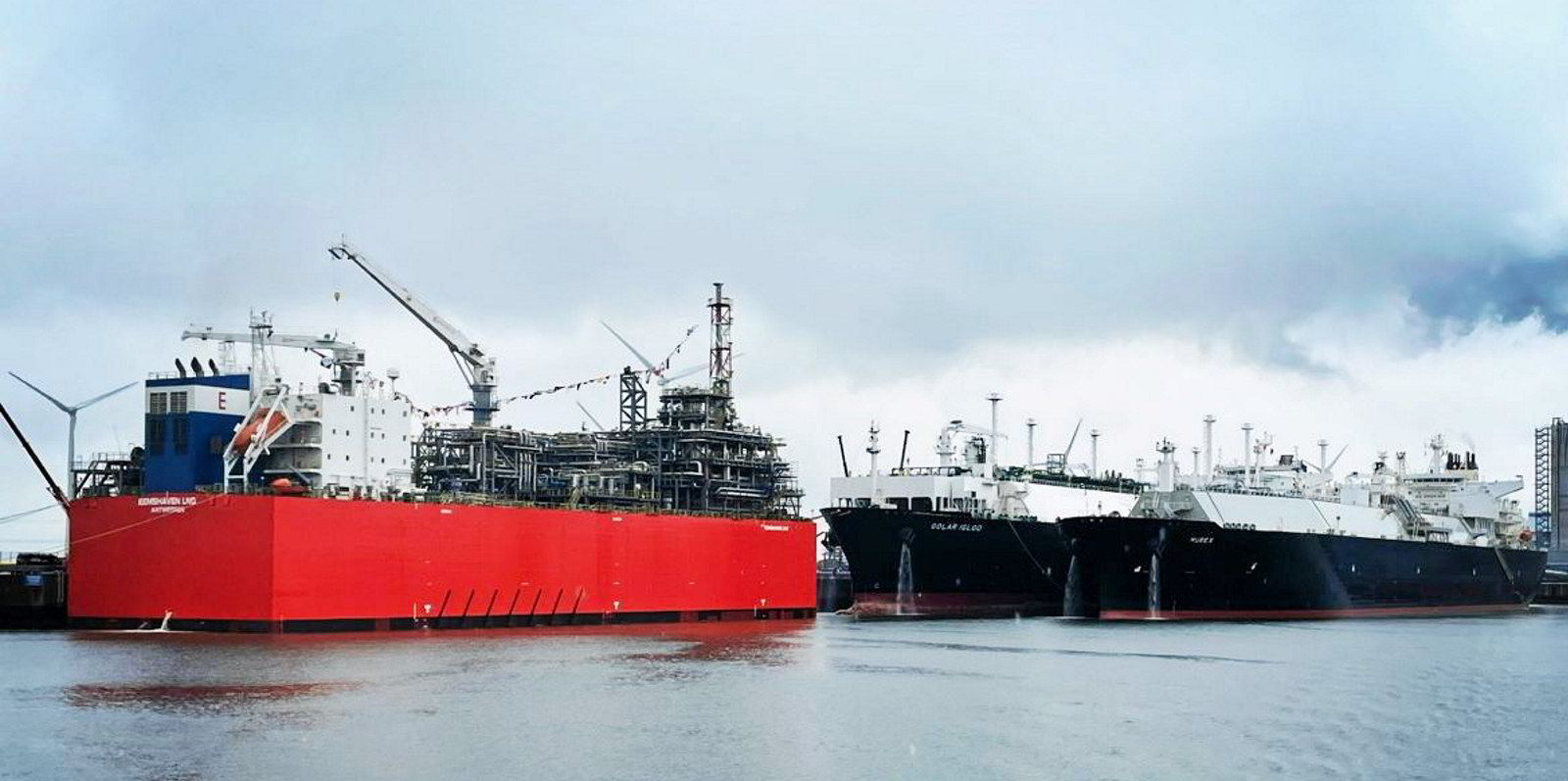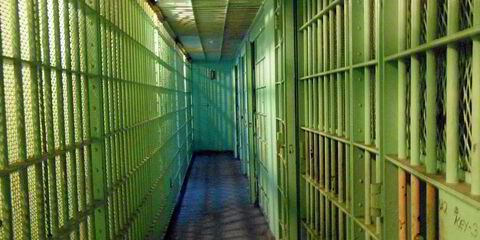Shipowners were out in force as one of the LNG industry’s key annual conferences rolled into the Greek capital of Athens this week.
Key players like Capital Gas, GasLog, Maran Gas Maritime and Mitsui OSK Lines took to the stage to speak on a packed panel session with Capital also playing lunchtime and evening host at events.
Other big names, including TMS Cardiff Gas’ George Economou, breezed through the hotel lobby areas with entourage in tow on the way to one-to-one meetings. While at least one famous face sat at the back of the auditorium apparently in incognito listening mode.
GasLog scooped the inaugural LNG Shipping Award for its order of four LNG carriers at Daewoo Shipbuilding & Marine Engineering and its work to develop an onboard CO2 capture and storage system.
The prize was accepted by chief executive Paolo Enoizi who while he expressed hopes for continued strength in the industry also sent a heartfelt wish for peace to the conflict which he said had sparked the boom in the LNG this year.
The fallout from Russia’s war in Ukraine and how it has fundamentally changed the LNG business permeated all discussions.
TotalEnergies Gas & Power vice president of LNG trading Patrick Dugas said the earlier mantra that LNG needs to be more flexible has now switched to one about the security of supply and reliability of imports.
There were calls for more new supply and final investment decisions (FIDs) on liquefaction projects with just 20-mtpa of new LNG production given the go-ahead so far in 2022 but amid talk of five impending FIDs.
Developers said there is a need for buyers to be prepared to sign long-term LNG supply contracts to support projects so they can be financed. But this does not sit easily with decarbonisation goals for some.

Nigeria LNG managing director and chief executive Philip Mshelbila said today the picture is being distorted as governments are stepping in to secure energy supplies.
Mshelbila urged the industry to decarbonise and “clean up its act”. This is “not an option” he said, adding that the sector “can’t play the ostrich”.
There was also much discussion about the need to cut methane emissions.
GIIGNL secretary general Vincent Demoury, who has been tracking LNG carbon-neutral cargoes, said that in the last 18 to 24 months the industry’s thinking has evolved and turned towards the reduction of emissions and not just offsetting.
“We could say that LNG is ahead of the game compared to other fossil fuels,” Demoury said.
Speakers expressed concerns that 2023 was going to be a more challenging year to get replacement LNG supplies into Europe than this year.
Referencing shipyards’ full berths position, Vopak president of New Energy & LNG Kees Van Seventer said there will not be any more quick solutions coming from the FSRU market.
He said there may be some optionality from conversions of LNG carriers into regasification units. But he added that this comes at a cost and a timeline and will not help the region for the next few winters.
Van Seventer said Europe “got lucky” with its LNG imports this year. But he said: “We are getting close to a stalemate,” adding that things will likely get worse before they get better.





